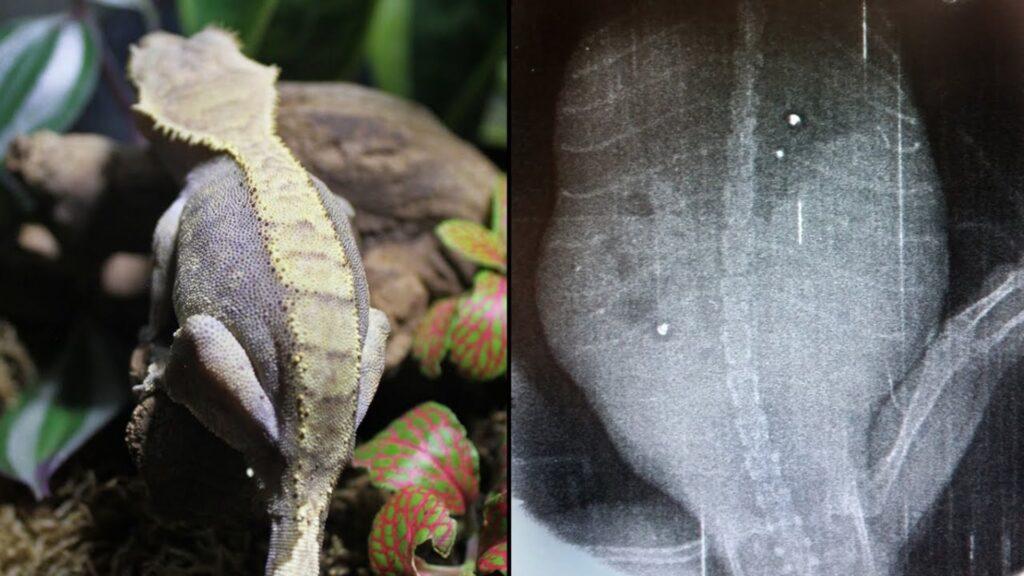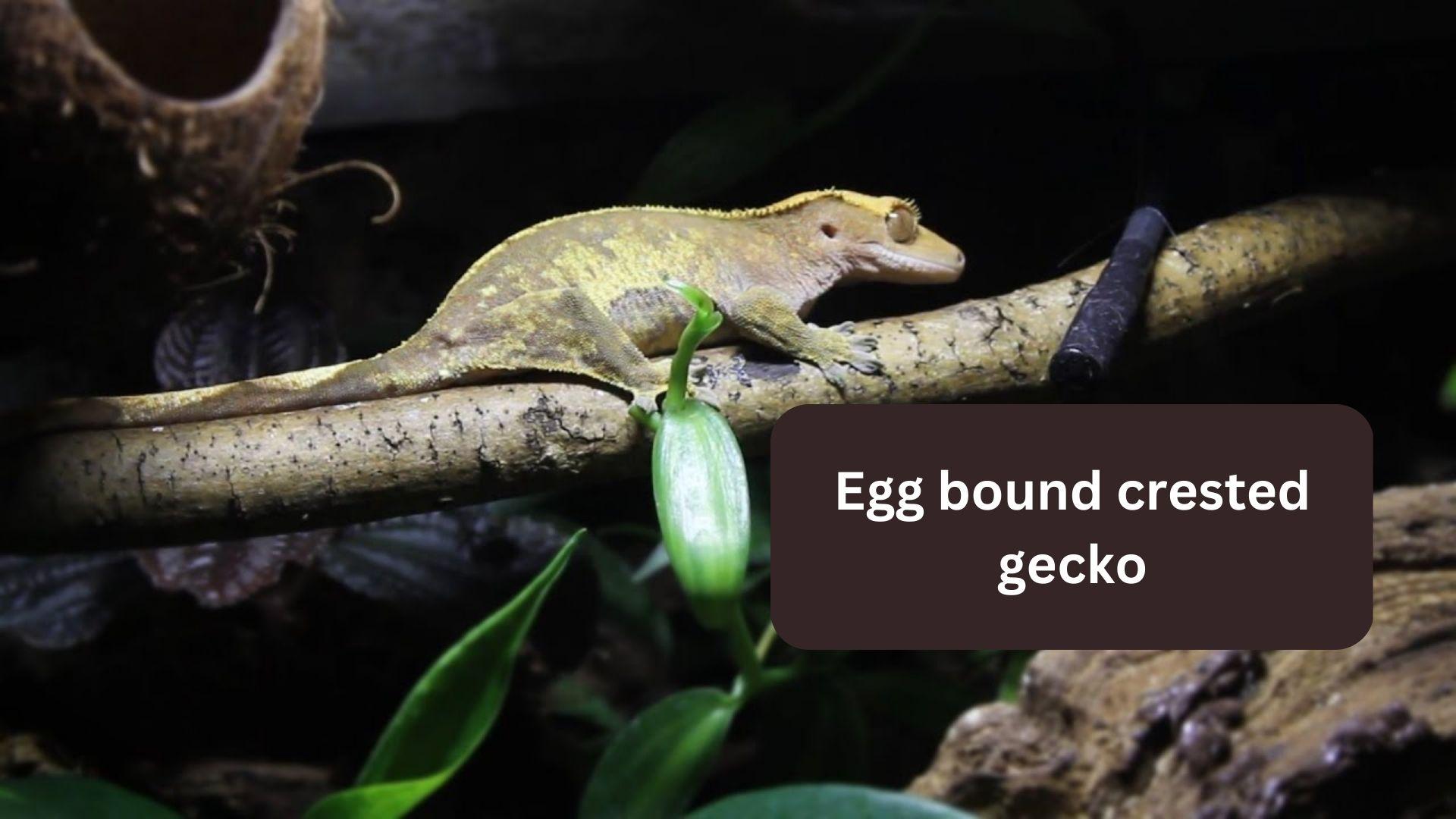
Key Takeaway:
- Egg-binding is a condition where a female crested gecko is unable to lay her eggs, which can be serious and potentially life-threatening.
- Common signs of egg-binding include a swollen abdomen, lack of appetite, lethargy, straining to lay eggs, distressed behavior, and dips in weight.
- Treatment may involve supportive care, providing necessary nutrients, assistive hatching, antibiotics, or surgery and it is crucial to seek veterinary care promptly if you suspect your gecko is egg-bound.
Crested geckos are popular pets and can lay eggs if they are sexually mature and have access to a suitable lay box.
Sometimes, however, a female crested gecko may experience egg-laying problems, such as being “egg-bound,” meaning that she cannot lay her eggs for various reasons.
This condition can be serious and even life-threatening, so it’s important to be able to recognize the signs of egg-binding and know what steps to take if your gecko is affected.
This article will explore the causes of egg-binding in crested geckos, how to spot the signs, and what to do if you suspect your gecko is egg-bound.
What Is Egg Bound In A Crested Gecko?
Egg-bound, also known as dystocia, is a condition in which a female crested gecko is unable to lay her eggs.
This can occur for various reasons, such as insufficient calcium or other nutrients, dehydration, poor substrate or laying conditions, or an egg that is too large to pass.
Egg-binding can cause discomfort and health problems for the gecko, so it is important to seek veterinary care if you suspect that your gecko is egg-bound.

Signs Of Crested Gecko Egg Bound
Some common signs of egg-binding in crested geckos include:
- Swollen abdomen: The gecko’s belly may appear larger and harder than usual, indicating that she is carrying un-laid eggs.
- Lack of appetite: A gecko that is egg-bound may lose her appetite and stop eating.
- Lethargy: The gecko may become sluggish and have a reduced activity level.
- Straining to lay eggs: You may see the gecko pushing or straining as if she is trying to lay eggs, but is unable to do so.
- Distressed behavior: The gecko may show signs of discomfort, such as repeatedly climbing and descending from her lay box or hiding.
- Dips in weight: The gecko may experience sudden weight loss.
If you suspect that your crested gecko is egg-bound, it is important to seek veterinary care promptly to ensure the best outcome for your pet.
How To Treat An Egg-Bound Crested Gecko
Treatment for an egg-bound crested gecko will depend on the underlying cause of the egg-binding, but may include the following steps:
- Provide supportive care: Keep the gecko hydrated and provide a warm and humid environment to help her relax and facilitate egg-laying.
- Provide calcium and other necessary nutrients: Make sure the gecko has access to a calcium supplement and a well-balanced diet to support her health and egg production.
- Assistive hatching: In some cases, a veterinarian may be able to manually remove the egg or perform a surgical procedure to remove the egg.
- Antibiotics: If there is an infection present, antibiotics may be prescribed to clear it up.
- Surgery: In severe cases, surgery may be necessary to remove the eggs or repair any damage caused by the egg binding.
It’s important to note that egg-binding can be a serious and potentially life-threatening condition for crested geckos, so it’s essential to seek veterinary care as soon as possible if you suspect your gecko is egg-bound.
Summary
Egg binding in crested geckos can occur for various reasons and can be a serious condition.
It is important to recognize the signs of egg-binding, such as a swollen abdomen, lack of appetite, lethargy, straining to lay eggs, distressed behavior, and dips in weight.
If you suspect your gecko is egg-bound, it is crucial to seek veterinary care promptly to ensure the best outcome for your pet.
Treatment may involve providing supportive care, providing calcium and other necessary nutrients, assistive hatching, antibiotics, or surgery.
Remember, early detection and treatment are key to ensuring the health and well-being of your crested gecko.

